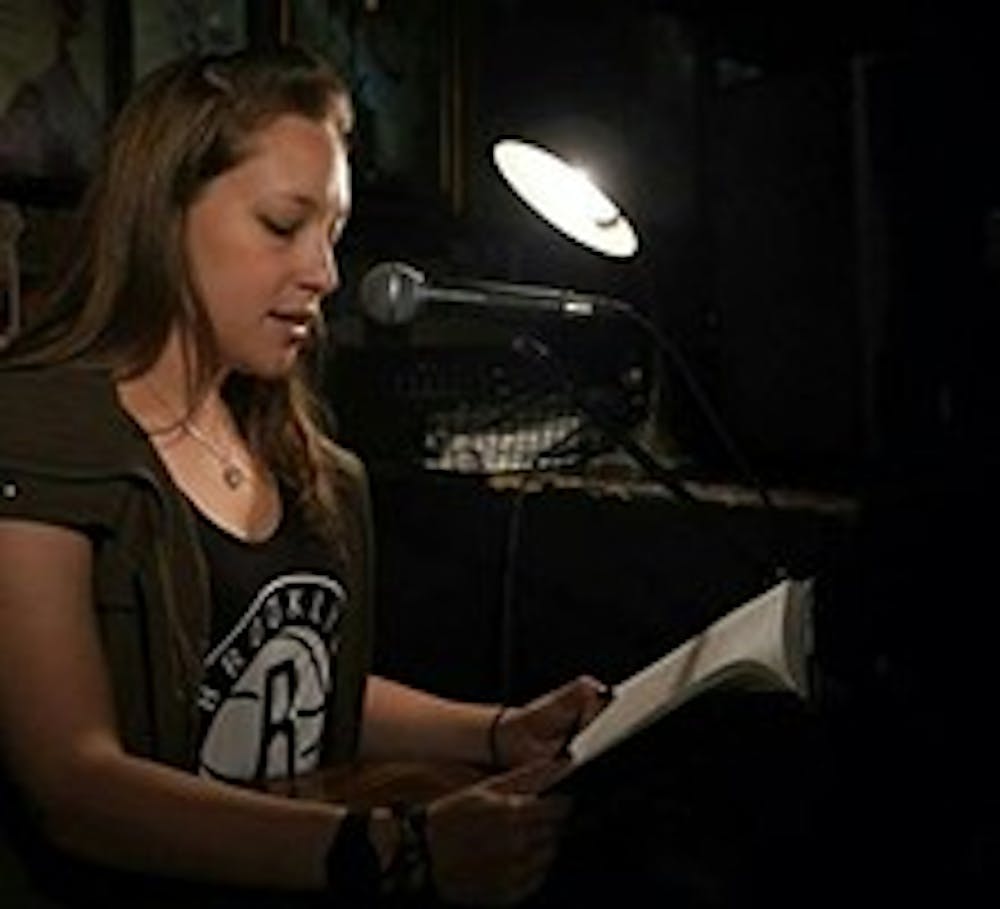The Kelly Writers House hosts events all the time. There’s usually food, and always a throng of eager English majors sitting on the mismatched wooden chairs. But there aren't always American Sign Language interpreters and a discussion on how to best represent the unspoken language onto the page in English.
On Tuesday, Sara Nović came to the Kelly Writers House to discuss her novel Girl at War with professor Beth Kephart and to talk about how she navigates the deaf and literary worlds as a writer and activist. Nović, who was born hearing but lost her hearing as she grew up, advocates for deaf and disability rights and points out the ableism that pervades language and culture.
She’s an outspoken critic of misrepresentation in Hollywood. Her thoughts on Sally Hawkins’ Oscar–nominated performance in The Shape of Water? “She signs like a toddler,” Nović said bluntly. “It’s pretty clear to any deaf or signing person whether or not you’re signing like a fluent person.”
Representation matters, Nović insisted. “That’s the way that many people interact with and understand deafness, signing, disabilities—through the way it’s portrayed in movies and books,” she said.
And in a time of Hollywood cultural awakening (aka: powerful men finally recognizing the experiences of women and minorities), lack of representation is very much a widespread problem. “Hollywood does that in a lot of facets,” Nović said. “We see a lot of whitewashing, we see ways in which misogyny runs through too. So it’s not like this is their only fail.”
The English language is filled with ableist customs, too. “A phrase like, ‘fall on deaf ears,’ which actually means people are purposefully ignoring you or they’re stupid. It doesn’t mean they didn’t hear you,” Nović said. “So that’s super frustrating.”
Nović is currently trying to figure out how to represent ASL on paper. It’s barely been attempted before, because it’s complicated. ASL isn’t just English with signs—it’s an entirely different language, with a distinct set of grammar and syntax—so Nović has to decide how to show readers what dialogue is like between two people communicating in ASL.
Nović spends her life navigating this divide between the hearing and non–hearing worlds. One audience member asked her if she struggles within the deaf community because she often speaks aloud in English. Nović paused before she responded, contemplating. She’s thought about this a lot, it seems, as a writer, activist, and deaf person in the hearing world.
Sometimes someone on Twitter will criticize Nović for talking to a crowd. She reaches more people this way, whether she’s advocating or reading her writing, but it’s a compromise. “It makes me feel upset, but, at the same time, I get it,” she signed to the audience. “But I advocate for deaf people because I want to, because I’m deaf, and because I’m proud of that.”







